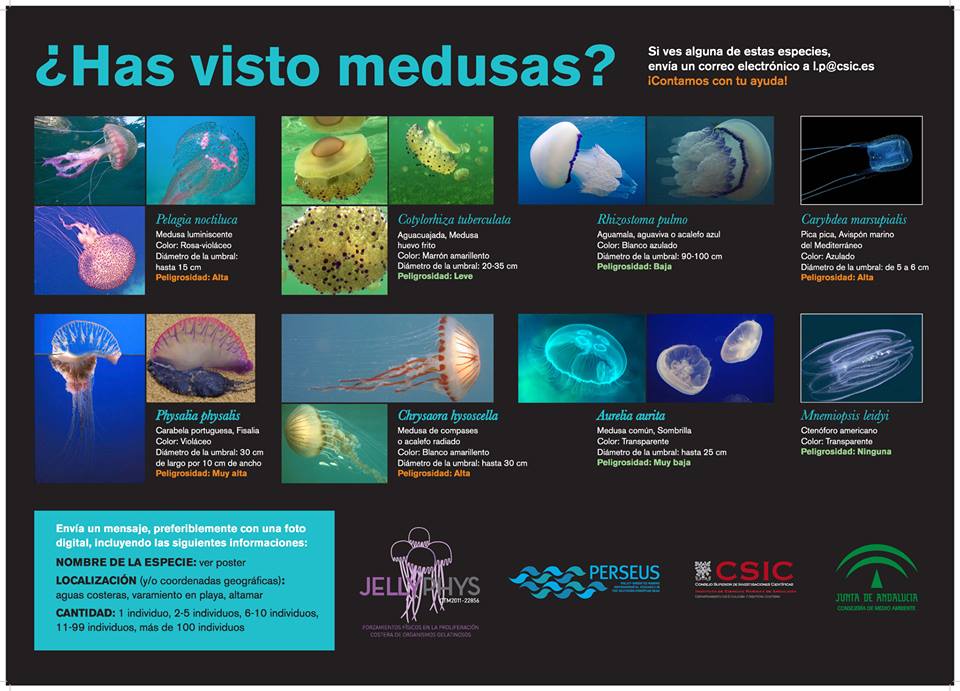JELLY FISH RESEARCH SOUTH SPAIN PROJECT IN MARINA DEL ESTE (Almuñecar)
The Jelly Fish Project is established in the Marina del Marina del Este.
What do we do?
The "Jellyfish Research South Spain" Project began in the spring of 2012, the main objective is to study the past, the present and future fluctuations of the populations of gelatinous organisms in the coastal waters of Almuñécar, province of Granada, in southern Spain. Since the summer of 2012, we have been collecting oceanographic data, biological data and gelatinous plankton samples. We are proud to have the Spanish Higher Council for Scientific Research (CSIC), associated center of Cadiz who support us with logistics,
oceanographic instruments and materials.
Who are we?
Karen Enayati se
degree in Marine Sciences from the University of Cádiz and with the
Master of Oceanography awarded in December 2012 also by the
University of Cadiz. He is currently developing a doctoral thesis on the study of gelatinous zooplankton (Jellyfish, salps and cottenophores) in waters of the Sexitan Coast. It studies the combination of the dynamics of the populations of gelatinous organisms with the changes of oceanic water bodies and the correlation of the presence of gelatinous organisms with meteorological and oceanographic variables. Darius Enayati studio cameraman, is an experienced diver and an underwater videographer. He is in charge of all the technical aspects of the project and records the different stages of our progress.
Why have we chosen this particular study area? The Costa Tropical is
located in the northern part of the Alboran Sea, right at the entrance to the Mediterranean Sea. The water of the Alboran Sea is affected by the colder and less salty waters of the Atlantic that enters the Mediterranean through the Strait of Gibraltar and mixes with the salty waters of the Mediterranean, which is warmer. The west and east currents are predominant in the main study area, which is located around La Punta de la Mona This area is presence of sport divers throughout the year in our study area, who can inform us about the presence of jellyfish. Due to the unforeseen reduction in funding by the Spanish government for research, we are now forced to ask for help with the funding of our work. In parallel we are in the process of obtaining some type of funding with different foundations and entities, but unfortunately this aid will only be available to us in the middle of the 2014. Our research has important implications for the development of the understanding of long-term fluctuations of gelatinous zooplankton and the possible connection with global changes in the world's oceans. Jellyfish have become more abundant in the ocean in recent decades. Jellyfish proliferations appear to be related to anthropogenic impacts such as overfishing, habitat modification,
eutrophication and climate change. The combination of these factors act synergistically creating a habitat that is more favorable for jellyfish. It would be a shame to have to lose a couple of months of this research just because of the lack of funding.. To be able to keep up with our research we need a minimum of 600 euros every month. This is why the
which we ask you to commit to some donation. Thank you very much for your generosity.



